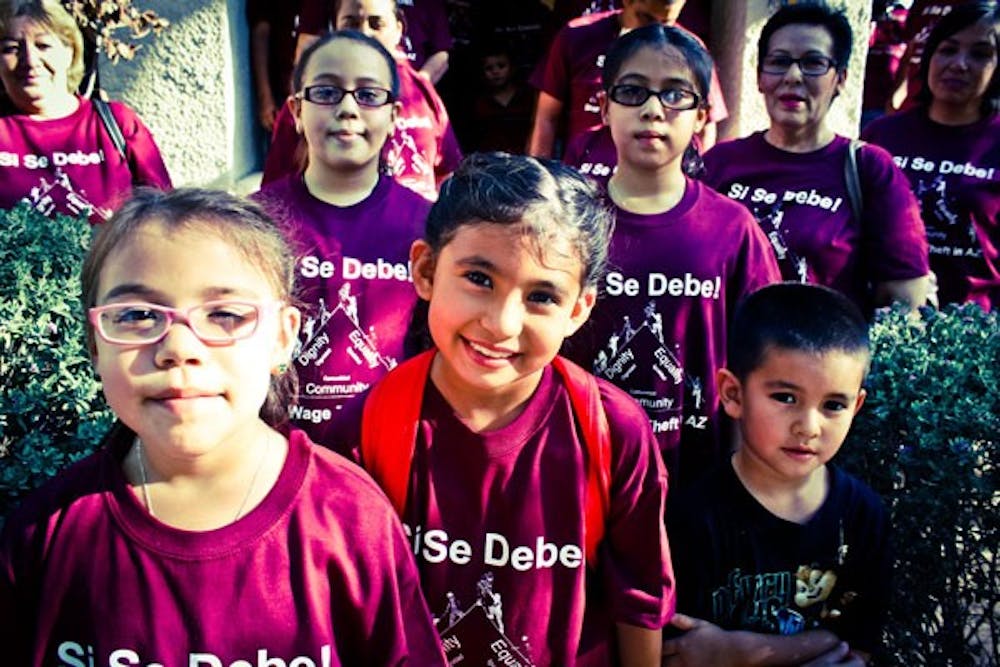Michelle Tellez and Justine Garcia have worked late nights for nearly a year to produce the documentary “Workers on the Rise.”
Garcia took her desktop computer to Tellez’s house each time, so they could go over hours of footage together.
Sunday was one of their last meetings before they show their documentary Wednesday at the West campus.
The 30-minute video tells the story of the Arizona Worker Rights Center and the people the center has helped.
The center, which opened in 2008, compiles statistics, does direct service work and has organized a policy campaign to educate migrant workers about their rights.
A 2011 report by the U.S. Department of Education estimated there are 360,000 illegal immigrants in Arizona.
Tellez, who teaches transnational feminist courses, contacted Garcia in January to begin the project.
The documentary started as a short video for the center’s website.
“As stories started coming out, it kept getting longer,” Tellez said. “We want to eventually make it a feature film.”
Garcia, who graduated from ASU in 2011 and now works as a video producer for the ASU Foundation, said there is still more to tell about the center.
“There’s so much potential (and) so many stories,” Garcia said. “We would like to go into depth with all of them.”
Their goal is to show the documentary in other universities and obtain national visibility.
“We want to educate folks outside Arizona who don’t know what’s going on,” Garcia said.
Garcia has always been interested in human rights. She was a member of Movimiento Estudiantil Chicano de Aztlán while she was an ASU student and was one of the nine students who chained themselves to the Arizona Capitol when the controversial immigration law Senate Bill 1070 passed in 2010.
“This has been a great opportunity to combine my passions for documentaries and human rights,” she said.
Most of the interviews in the video are in Spanish.
Garcia, who is not completely fluent in the language, found it challenging.
“There was a 9-year-old that had to interview someone for me once,” she said.
Tellez and Garcia interviewed eight people, including directors, board members and workers. They also recorded testimonies, events and workshops at the center.
The documentary will be completely bilingual, with subtitles both in English and Spanish.
“We’ve had folks from the center and students help us with translations,” Tellez said.
Nicolas de la Fuente, the center’s director of campaigns, said the video highlights important issues.
The documentary will show a different side to Arizona’s migrant workers’ rights, de la Fuente said.
“The problem is that the Latino community is portrayed in the media as very docile and afraid,” he said. “But there is a lot of encouraging work being done here.”
The center has handled more than 300 cases in which workers have been treated unfairly or have not received payment for their services, de la Fuente said.
To help the migrant workers, the center offers leadership classes in which students learn about the history of labor struggles and the political terrain of Arizona. They also practice public speaking.
De la Fuente will be featured in the documentary.
“We talked to the folks at the center,” Garcia said. “Their voice is important because we want to represent them (and) show all their work.”
Reach the reporter at dpbaltaz@asu.edu or follow her on Twitter @dpalomabp





